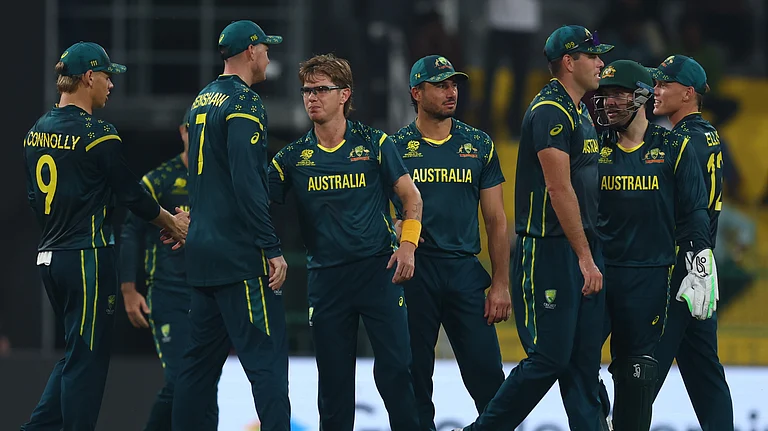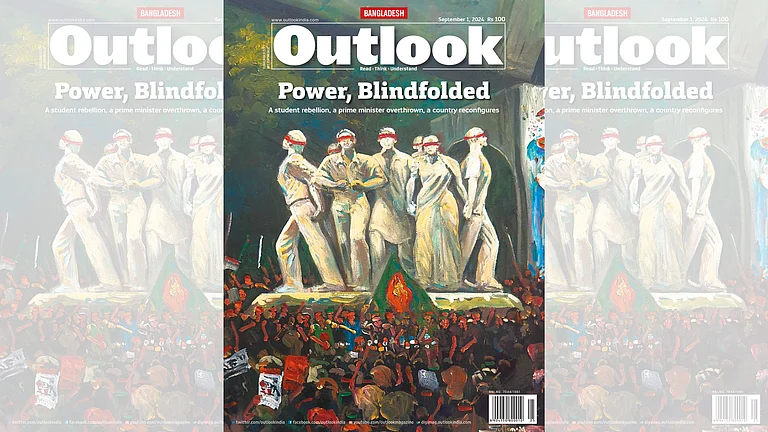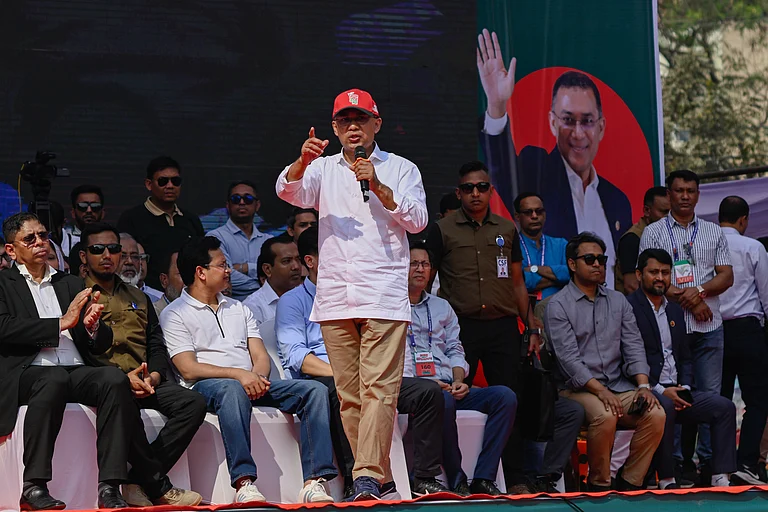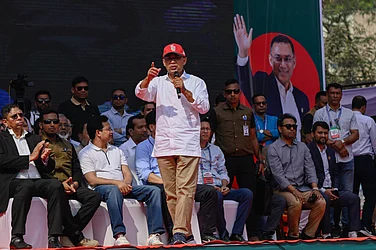A week after Outlook published relevant sections of an internal assessment of the Kargil war by the army, Patney spoke to Saikat Datta on various aspects of how the war was fought. He also raises pertinent questions on the command and control failure in the army, the flawed military advice given to the then political leadership and refutes the contention that the Indian air force was in any way responsible for the delay in air operations. Excerpts from the interview:
'Threat Of Nuclear War In Kargil Was A Bogey'
The man in charge of the air operations during the Kargil war on the command and control failure in the army, the flawed military advice given to the then political leadership and more...

'Threat Of Nuclear War In Kargil Was A Bogey'
'Threat Of Nuclear War In Kargil Was A Bogey'
As the Air Officer Commanding-in-Chief, Western Air Command, Air Marshal Vinod Patney was the man in charge of the air operations during the Kargil war. He was awarded a Sarvottam Yudh Seva medal for his role in the operations. Soon after Kargil, Patney—commissioned in the fighter stream and awarded a Vir Chakra for gallantry during the 1965 war—took over as the vice chief of air staff and was witness to the efforts made to plug the gaping holes in the security establishment post-Kargil.
A week after Outlook published relevant sections of an internal assessment of the Kargil war by the army, Patney spoke to Saikat Datta on various aspects of how the war was fought. He also raises pertinent questions on the command and control failure in the army, the flawed military advice given to the then political leadership and refutes the contention that the Indian air force was in any way responsible for the delay in air operations. Excerpts from the interview:
A week after Outlook published relevant sections of an internal assessment of the Kargil war by the army, Patney spoke to Saikat Datta on various aspects of how the war was fought. He also raises pertinent questions on the command and control failure in the army, the flawed military advice given to the then political leadership and refutes the contention that the Indian air force was in any way responsible for the delay in air operations. Excerpts from the interview:
Much has been made of the fact that air operations were introduced only on May 25. You were the AOC-in-c of Western Air Command, which directed the air operations in Kargil. What is your take on this?
Which means that the senior military leadership was unaware of the seriousness of the situation?
So where, then, was the problem?
But General Malik left for Poland on May 11, after the intrusions were discovered and returned much later. Senior officers, like Lt Gen H.M. Khanna, the northern army commander, were in Pune. There are reports that Maj Gen V.S. Budhawar, the divisional commander, was busy collecting animals for his zoo. Could this be construed as a paralysis in command and control?
In fact, most of the senior officers were awarded medals while the junior leaders were penalised.
Could air power have played a decisive role in the conflict? What about fears that this could have escalated the conflict?
Could the fact that both countries were overtly nuclear affect the decision-making process?
But was the COSC effective? Can the appointment of a Chief of Defence Staff (CDS) help?
How effective were the air surveillance operations?
What were the broad lessons of Kargil and how much has been implemented?
Published At:
MOST POPULAR
WATCH
MORE FROM THE AUTHOR
PHOTOS
×

























